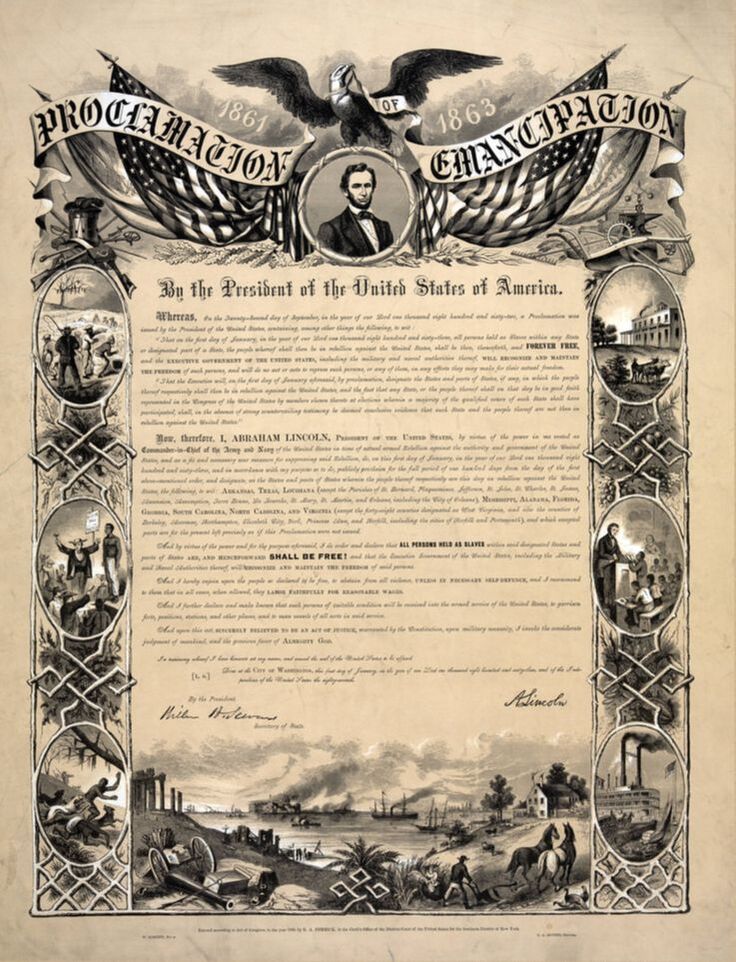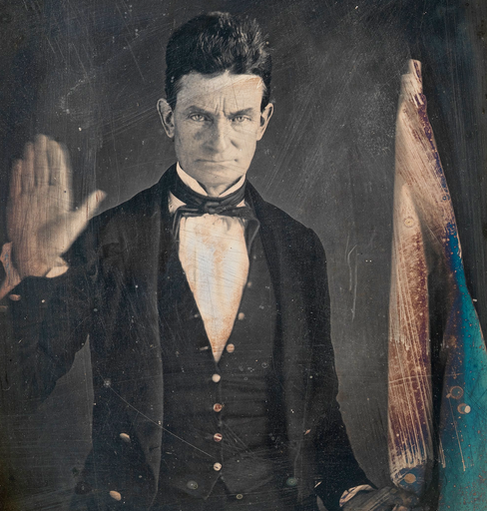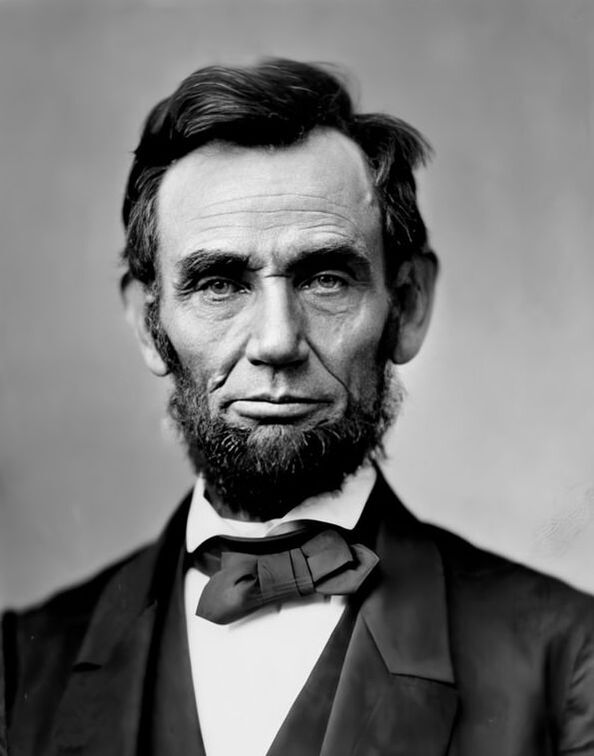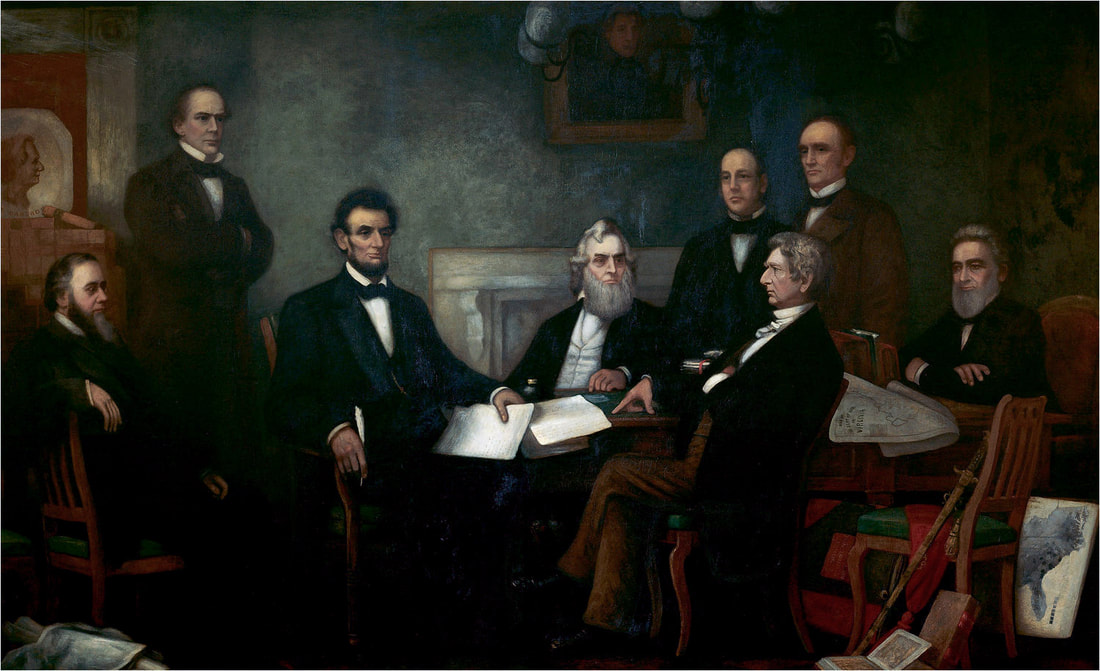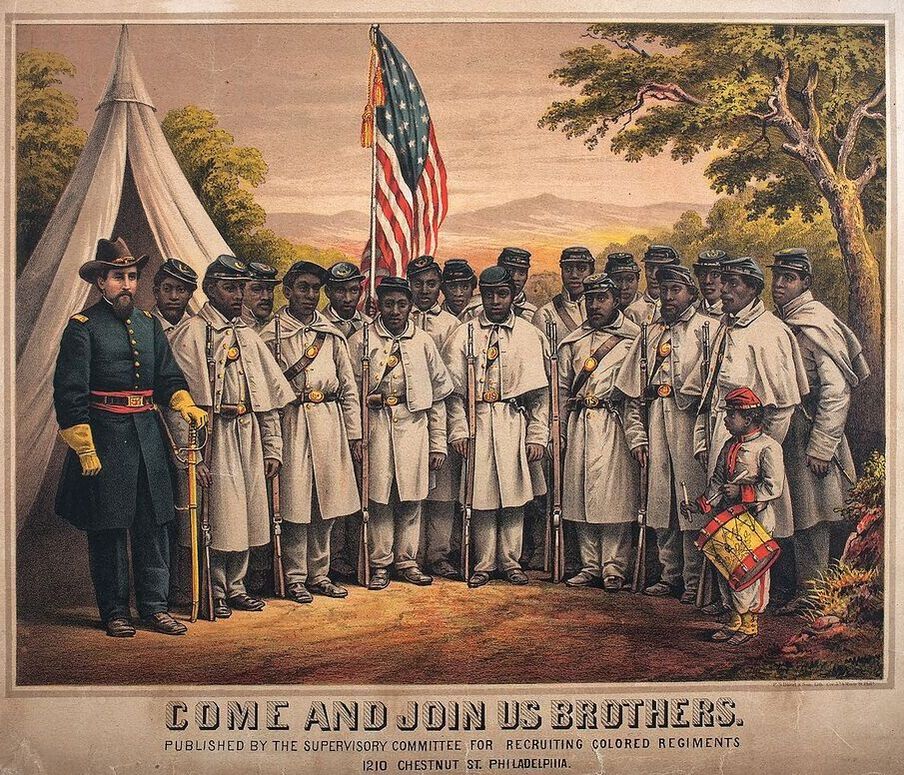EMANCIPATION PROCLAMATION
The Emancipation Proclamation is one of the most significant events in American history from the time of the 19th century. It was a presidential proclamation from Abraham Lincoln that legally freed millions of slaves living in the Southern Confederate states. As such, it was important to the history of slavery in the United States and the American Civil War. In fact, the Emancipation Proclamation took effect on January 1st of 1863, in the midst of the American Civil War. To understand the importance of the Emancipation Proclamation, it’s first important to learn about several topics, such as: history of slavery in the United States, the American Abolitionist Movement and the American Civil War.
LEAD UP TO THE EMANCIPATION PROCLAMATION
|
As stated above, the Emancipation Proclamation was a significant event in the history of slavery in the United States. Slavery in the United States existed from the period of Colonial America in the early 17th century until the events of the American Civil War, which lasted from 1861 until 1865. Throughout this timeframe, many slaves were brought from Africa to the territory of the United States via the Atlantic Slave Trade. In fact, approximately 600,000 African slaves were brought to the United States as part of the Atlantic Slave Trade, which amounts to about 5% of the total number of slaves from the time. Many of these slaves ended up working on plantations and households across the United States, and played a significant role in the production of certain goods.
However, many began to oppose the practise of slavery in the United States throughout the 19th century. This was due to the poor treatment of the slaves on the plantations and the difficult life for slaves in the United States. Eventually, the situation gave rise to the American Abolitionist Movement, which was the name for the advancements made in the United States towards ending the practise of slavery.
|
Throughout the early and mid-1800s, the abolitionist movement in the United States led to other developments, including the Underground Railroad, which was a system under which slaves from the Southern United States could escape into the Northern United States and Canada. It involved a series of routes, networks, and safe houses that escaped slaves could use as they travelled from the plantations in the south, to their freedom in the north.
|
These events, along with others, in the early 1800s set the stage for the eventual outbreak of the American Civil War. For instance, other significant events included: the Kansas–Nebraska Act of 1854, Bleeding Kansas and the raid on Harpers Ferry by John Brown in 1859. Understanding the basic history of the events that led to the American Civil War are significant because they highlight why President Abraham Lincoln felt it necessary to issue the Emancipation Proclamation. It also highlights the political divide that existed in the United States in the lead up to the American Civil War.
At its heart, the American Civil War was the result of growing tensions between the Northern states and Southern states on several issues, including slavery. In general, the American Civil War involved fighting in many different major and bloody conflicts between the two side. The Emancipation Proclamation was issued by President Abraham Lincoln during the events of the American Civil War and was one of the most significant events during the war.
|
EMANCIPATION PROCLAMATION OVERVIEW
When the American Civil War began in 1861, it divided the country between the Northern states (also referred to as the ‘Union’) and the Southern states (also referred to as the ‘Confederacy’). President Abraham Lincoln did not necessarily support an end to the practise of slavery at the time, but he wanted the Union to win by any means necessary. As such, he viewed ending slavery as a beneficial cause to the Union victory over the Confederacy. For instance, as the war raged on, many slaves from the Confederate states had escape North to their freedom. The earlier Fugitive Slave Act of 1850 made it such that escaped slaves were required to be returned to their original place of slavery. However, during the war, Union Generals began to defy the Fugitive Slave Act by refusing to return the escaped Southern slaves.
The large number of slaves that had run North presented a unique opportunity for Lincoln and the Union Army. For instance, if the newly escaped slaves joined the Union Army then they could help defeat the Confederacy, which had enslaved them. This was particularly of interest to Lincoln after two years of bloody battles in the Civil War.
As such, Lincoln wrote the Emancipation Proclamation in July of 1862 and began discussing it with his most trusted advisors. Some were shocked at the content of the Proclamation, while others supported it due to their agreement with abolitionism. Regardless, Lincoln issued the Emancipation Proclamation on September 22nd in 1862 and it was made effective on January 1st of 1863.
In short, the Emancipation Proclamation freed only the slaves that were being held in Confederate controlled states. At the time there were ten Confederate states that the Emancipation Proclamation applied to. This meant that the Emancipation Proclamation did not apply to the slaves that were held in the border states that were already loyal to the Union. As such, this meant that Emancipation Proclamation was limited in nature and did not fully end slavery in the United States. However, it meant that any slaves from the Confederate states that could escape north were free upon arrival. Furthermore, as the Union Army conquered territory in the Southern states, the slaves were instantly freed. In all, it is estimated that as many as 3.5 million slaves were freed as a result of the Emancipation Proclamation. Another half a million remained enslaved in the border states that were loyal to the Union. As well, the Emancipation Proclamation allowed black men to join the ranks of the Union Army in the fighting of the Civil war. In all, it is estimated that as many as 200,000 black soldiers fought for the Union.
IMPACTS OF THE EMANCIPATION PROCLAMATION
The Emancipation Proclamation had several major impacts. First, the Emancipation Proclamation made ending slavery a central focus of the Union in the American Civil War. While slavery had been a major issue of the Civil War from the start, it was not necessarily the main focus of the Union in the war. For instance, Abraham Lincoln did not outright support the abolitionist movement at the start of the war. Instead, he viewed slavery as a side issue to reunifying the country. However, with the announcement of the Emancipation Proclamation, he made slavery a primary issue of the remaining years of the Civil War. In fact, historians have noted how after the announcement of the Emancipation Proclamation, many enslaved people celebrated and fought for their escape.
The next major impact of the Emancipation Proclamation was that it led the country, and President Abraham Lincoln, towards the main goals of the American Abolitionist Movement. As stated previously, the abolitionists movement was aimed at ending slavery. President Lincoln did not always support this to a full extent, but the Emancipation Proclamation changed this. As a result, historians view the Emancipation Proclamation as a major event in the final years of the American Abolitionist Movement.
|
The third impact of the Emancipation Proclamation led to the enlistment of thousands of black soldiers in the Union Army. This was important as it helped the Union Army win the war against the Confederacy. As well, it allowed thousands of African Americans, and former slaves, the opportunity to fight for their own freedom.
The fourth impact was the anger expressed by the Confederacy. The announcement of the Emancipation Proclamation angered the Confederate states as it questioned their authority over the status of their own slaves. As a result, this caused the price of slaves in the Southern states to increase due to a view that supply of slaves could lessen. Furthermore, the Confederacy was worried about the use of black soldiers in the Union Army. In response, the Confederate Army began enlisting slaves in its own forces. However, this was done relatively late in the fighting of the Civil War and proved ineffective for the Confederacy.
|
The final impact was that the Emancipation Proclamation set in motion a major societal shift in the United States that impacted the country well into the 20th century. For instance, while the Emancipation Proclamation set the country on the path of finally ending slavery, it is also viewed as a major event in promoting the rights of African Americans. Although slavery ended in the timeframe of the American Civil War, African Americans still experienced prejudice well into the 20th century. This can be seen in the events of the Civil Rights Movement. For example, Martin Luther King Jr. referenced the Emancipation Proclamation several times during his fight against injustice in the 1950s and 1960s.
FULL TEXT OF THE EMANCIPATION PROCLAMATION (1863)
By the President of the United States of America:
A Proclamation.
Whereas, on the twenty-second day of September, in the year of our Lord one thousand eight hundred and sixty-two, a proclamation was issued by the President of the United States, containing, among other things, the following, to wit:
"That on the first day of January, in the year of our Lord one thousand eight hundred and sixty-three, all persons held as slaves within any State or designated part of a State, the people whereof shall then be in rebellion against the United States, shall be then, thenceforward, and forever free; and the Executive Government of the United States, including the military and naval authority thereof, will recognize and maintain the freedom of such persons, and will do no act or acts to repress such persons, or any of them, in any efforts they may make for their actual freedom.
"That the Executive will, on the first day of January aforesaid, by proclamation, designate the States and parts of States, if any, in which the people thereof, respectively, shall then be in rebellion against the United States; and the fact that any State, or the people thereof, shall on that day be, in good faith, represented in the Congress of the United States by members chosen thereto at elections wherein a majority of the qualified voters of such State shall have participated, shall, in the absence of strong countervailing testimony, be deemed conclusive evidence that such State, and the people thereof, are not then in rebellion against the United States."
Now, therefore I, Abraham Lincoln, President of the United States, by virtue of the power in me vested as Commander-in-Chief, of the Army and Navy of the United States in time of actual armed rebellion against the authority and government of the United States, and as a fit and necessary war measure for suppressing said rebellion, do, on this first day of January, in the year of our Lord one thousand eight hundred and sixty-three, and in accordance with my purpose so to do publicly proclaimed for the full period of one hundred days, from the day first above mentioned, order and designate as the States and parts of States wherein the people thereof respectively, are this day in rebellion against the United States, the following, to wit:
Arkansas, Texas, Louisiana, (except the Parishes of St. Bernard, Plaquemines, Jefferson, St. John, St. Charles, St. James Ascension, Assumption, Terrebonne, Lafourche, St. Mary, St. Martin, and Orleans, including the City of New Orleans) Mississippi, Alabama, Florida, Georgia, South Carolina, North Carolina, and Virginia, (except the forty-eight counties designated as West Virginia, and also the counties of Berkley, Accomac, Northampton, Elizabeth City, York, Princess Ann, and Norfolk, including the cities of Norfolk and Portsmouth[)], and which excepted parts, are for the present, left precisely as if this proclamation were not issued.
And by virtue of the power, and for the purpose aforesaid, I do order and declare that all persons held as slaves within said designated States, and parts of States, are, and henceforward shall be free; and that the Executive government of the United States, including the military and naval authorities thereof, will recognize and maintain the freedom of said persons.
And I hereby enjoin upon the people so declared to be free to abstain from all violence, unless in necessary self-defence; and I recommend to them that, in all cases when allowed, they labor faithfully for reasonable wages.
And I further declare and make known, that such persons of suitable condition, will be received into the armed service of the United States to garrison forts, positions, stations, and other places, and to man vessels of all sorts in said service.
And upon this act, sincerely believed to be an act of justice, warranted by the Constitution, upon military necessity, I invoke the considerate judgment of mankind, and the gracious favor of Almighty God.
In witness whereof, I have hereunto set my hand and caused the seal of the United States to be affixed.
Done at the City of Washington, this first day of January, in the year of our Lord one thousand eight hundred and sixty three, and of the Independence of the United States of America the eighty-seventh.
By the President: ABRAHAM LINCOLN
WILLIAM H. SEWARD, Secretary of State.
WILLIAM H. SEWARD, Secretary of State.
CITE THIS ARTICLEAUTHOR
|
|

